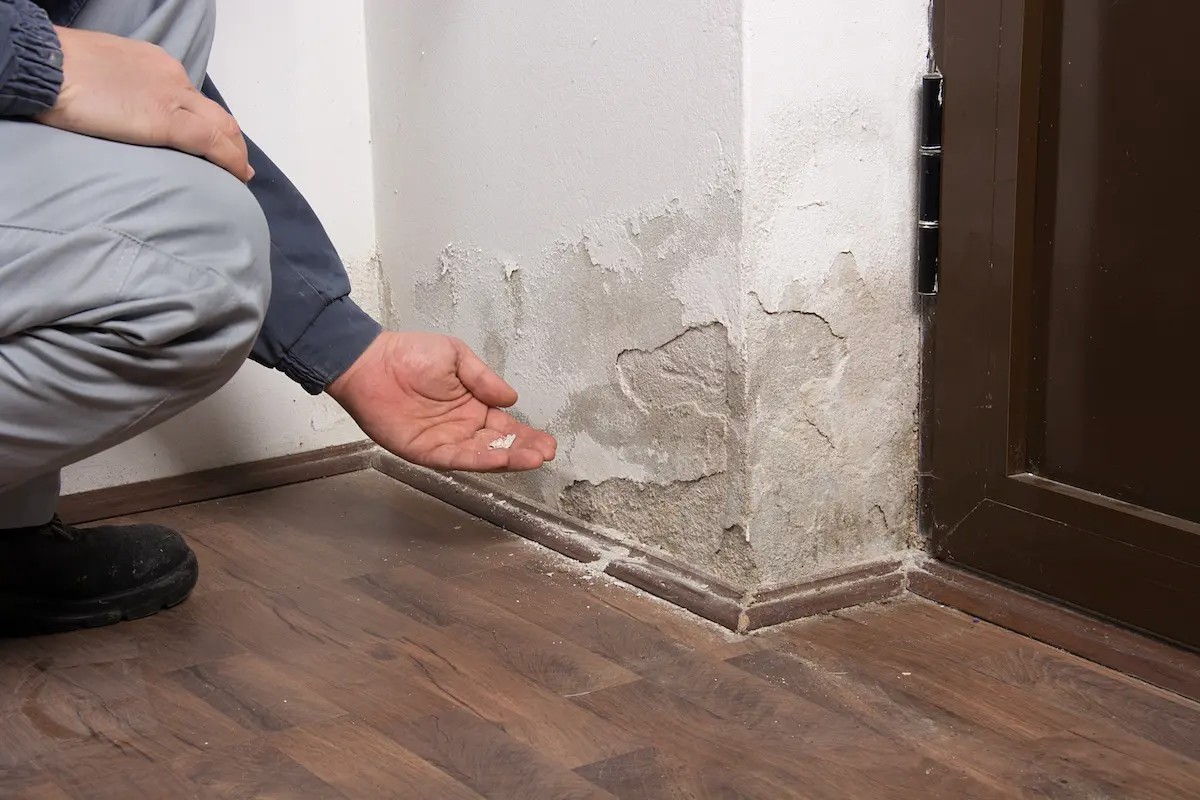Are you aware of the hidden dangers lurking in your apartment complex? Untreated water damage can pose serious risks to both your health and safety. Mold and mildew can grow rapidly, causing respiratory issues and structural damage.
Faulty electrical systems can lead to fires and compromised indoor air quality can negatively impact your well-being. Don’t overlook the importance of addressing water damage promptly. Ignoring it can lead to costly consequences for both tenants and landlords.
Structural Integrity Risks
You should be aware of the structural integrity risks associated with untreated water damage in apartment complexes.
When water damage occurs and is left untreated, it can lead to serious consequences for the building’s overall stability. The prolonged exposure to water can weaken the foundation, walls, and floors, compromising the structural integrity of the entire complex. As the water seeps into the building materials, it can cause them to warp, rot, or even collapse. This can result in costly repairs and, in extreme cases, the need for evacuation.
Additionally, untreated water damage can create the perfect breeding ground for mold and mildew, which further deteriorates the building’s structure and poses health risks to residents. Therefore, it’s crucial to address water damage promptly to prevent these structural integrity risks from escalating.
Health Hazards From Mold and Mildew
Living in a damp environment can put your health at risk due to the presence of mold and mildew. When water damage is left untreated in apartment complexes, it creates the perfect breeding ground for these harmful fungi.
Mold and mildew release spores into the air, which can be inhaled and cause a range of health problems. Breathing in these spores can trigger allergies, asthma attacks, and respiratory infections. It can also lead to coughing, sneezing, and itchy eyes.
In some cases, prolonged exposure to mold and mildew can even result in more serious conditions, such as chronic sinusitis or fungal infections.
To protect your health, it’s crucial to address water damage promptly and ensure proper remediation measures are taken to eliminate mold and mildew growth.
Electrical Hazards and Fire Risks
Be aware of electrical hazards and fire risks that can arise in environments with faulty wiring or overloaded circuits. In apartment complexes, untreated water damage can lead to serious electrical problems that put you and your neighbors at risk.
When water seeps into walls, ceilings, or floors, it can damage electrical wiring, causing shorts, power surges, or even electrical fires. Faulty wiring, combined with the moisture from water damage, creates a dangerous combination.
Overloaded circuits can also occur when residents try to compensate for the loss of power in certain areas by plugging in multiple appliances into a single outlet. This can lead to overheating and potential fires.
It’s crucial to address water damage promptly and hire professionals to assess and repair any electrical issues to ensure your safety and prevent disasters.
Decreased Indoor Air Quality
Your indoor air quality can be negatively affected by factors such as poor ventilation, high humidity levels, and the presence of pollutants like dust, pet dander, and mold spores.
When your home lacks proper ventilation, fresh air can’t circulate effectively, leading to a buildup of pollutants and allergens. Additionally, high humidity levels create a breeding ground for mold and mildew, which release spores into the air, causing respiratory issues and allergies.
Dust and pet dander, often invisible to the naked eye, can accumulate in your home and trigger allergies and asthma symptoms. To improve your indoor air quality, ensure proper ventilation by opening windows when possible and using exhaust fans.
Keep humidity levels in check with dehumidifiers and fix any leaks promptly. Regularly clean and dust your home, and consider investing in air purifiers to remove pollutants and allergens from the air you breathe.
Financial Consequences for Tenants and Landlords
You may experience financial consequences as a tenant or landlord due to the decreased indoor air quality in your building. Poor air quality can lead to health issues, which can result in increased medical expenses for tenants. If the air quality isn’t improved, tenants may seek legal action against landlords, potentially leading to costly lawsuits.
As a landlord, you may also face financial repercussions in terms of property value. Buildings with poor indoor air quality may be less desirable to potential tenants, leading to higher vacancy rates and lower rental income. Additionally, you may be required to invest in air quality improvements or remediation efforts to address the issue, which can be a significant financial burden.
Therefore, it’s crucial for both tenants and landlords to address and improve indoor air quality to avoid these potential financial consequences.











